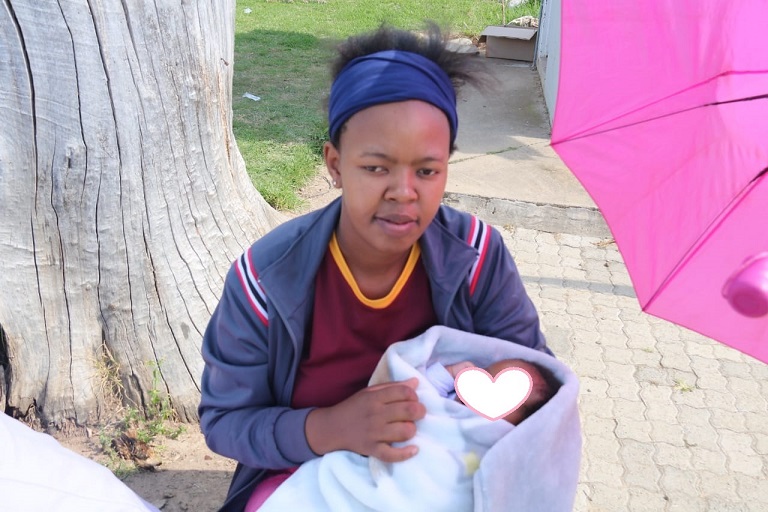
Liapeng Raliengoane: raliengoaneliapeng@yahoo.com
LESOTHO, Leribe – As the world commemorates the International Midwifery Day today, several interviews with midwives, village health workers and nursing mothers in the remotest areas of Leribe revealed that the midwives are instrumental in reducing maternal mortality and improving the overall health of mothers and new-borns in Lesotho.
According to the World Health Organization (WHO), quality midwifery reduces maternal, new-born mortality and still birth rates by over 80% and reduces pre-term labour and birth by 24%.
International Midwifery Day is celebrated on 5th May every year to raise awareness of the role of midwives and to meet the growing needs of more midwives around the world. This year’s theme is “Together again: from evidence to reality.”
The Maternal Death Review Report (2015), has shown that the highest number of maternal deaths occurred in Maseru at Queen ‘Mamohato Hospital where 102 women lost their lives as a result of complications of delivery or inadequate care during pregnancy. Additional figures came from Leribe and Berea with 25 and 19 lives lost respectively.
Currently working at St. Dennis Health Centre, Nurse Midwife Tlaleng Motaba indicated that she studied towards midwifery because she loved it since childhood. She started working as a midwife in 2019.
Midwife Motaba revealed that in the beginning she was scared of delivering babies but as time went on, she got used to it.
The most challenging incident she came across while assisting a mother to deliver was when one day she came across twins, the mother did not go for ultrasound scan beforehand.
“This situation scared both me and the delivering mother as she was not anticipating twins, but all went well, there were no complications both babies and their mother lived,” she said.
She also expressed a wish for midwives to be afforded an opportunity for refresher courses often. Her words of encouragement to other midwives is that they should love their job and also groom expecting and delivering mothers to do the right thing.
From Khabo Health Centre, Nurse Midwife Lahlewe Kao said growing up, she aspired to become a nurse and her dream came true. She started working at the facility in 2022 and has delivered about 15 to 20 babies and they were all alive.
Midwife Kao expressed that seeing both the mother and baby healthy post-delivery, is satisfactory to her and brings a lot of joy in her heart. That one challenge facing them is the shortage of staff.
She said the most challenging instant in her life was when one midnight she was helping a mother to deliver and came across a complication thus had to refer her to the hospital but none of the emergency ambulances were available.
In the end she got help from a villager’s personal car and the mother was taken to the hospital and was delivered. She said this was the most frustrating event she went through as she was worried about both the mother and the baby when her efforts to get a car proved futile.
To her fellow colleagues this International Midwifery Day, midwife Kao encourages them to work tirelessly in seeing that both the delivering mothers and their babies are safe in their hands.
Although midwifery is a career perceived by society to be for women, Lesotho has beaten this odd, as there are male midwives.
A Nurse Midwife working at Matlameng Health Centre Thabo Makhakhe made known that he became a midwife because he had never seen a male midwife and he wanted to be a trailblazer in that field. He started working as a midwife in 2019 and has delivered many healthy babies. His message to fellow colleagues today, is that they should always be positive.
Another Nurse Midwife from Matlameng Health Centre Teboho Makhebesela started working as a midwife in 2021. He said he became a midwife because he wanted to become “something big” in life as in his family there were no graduates at all he wanted to defeat the odds.
He explained that he has so far delivered about 20 babies. That he has realized that festive season, is the busiest season whereby many babies are delivered.
His words of encouragement to the fellow midwives is that midwifery is a closed book, that they should update their knowledge often, they should read a lot and also meet with other midwives to discuss the challenges they come across.
To other males who want to become midwives but succumb to societal beliefs, he encouraged them to pursue midwifery and never mind what people are saying. That they should be aware that every now and then, there is a baby born thus they will have job and a well-paying one for that matter.
A Nursing Mother from Thaba Phatšoa Ha Toboleloa ‘Mampho Raleting related that she got good health services from when she was pregnant, while giving birth and post-delivery. She marvelled at the support the midwives provided and continue to provide in her journey of motherhood.
A Village Heath Worker from Ha Toboleloa ‘Makelello Pitsi expressed joy over the work and services provided by the midwives. She said their dedication goes beyond their scope of work.
“Sometimes when delivering mothers have no clothes, or no money to go to Motebang hospital when they are referred there, the midwives provide them from their own pockets. I have seen it happen many times, they are the real-life savers in every sense of the word,” Pitsi revealed.
These interviews were conducted during a field trip supported by the United Nations Population Fund Lesotho (UNFPA) for journalists to conduct interviews in hard to reach clinics so as to write informed stories that highlight the role of midwives in saving the lives of mothers and babies and focusing on the critical role of midwives in reducing maternal and child mortality in the country.
A statement by UNFPA highlights that the midwives and people with midwifery skills are the main caregivers for women and their new-borns during pregnancy, labour, childbirth and in the post-delivery period, therefore, UNFPA stands in solidarity with midwives worldwide and expresses gratitude to them for the life-saving work they do. UNFPA’s theme for this day is “Actioning Evidence: Leading the Way to Enhance Quality Midwifery Care Globally.”
In over 125 countries, UNFPA advances midwifery by strengthening quality education, regulations and workforce policies, and building strong national associations of midwives.
In Lesotho, UNFPA supports the government through the Ministry of Health in advancing the midwifery curriculum and strengthening midwifery services as a strategy of reducing maternal deaths. It also supports training of midwives, emergency obstetric and neonatal care.








